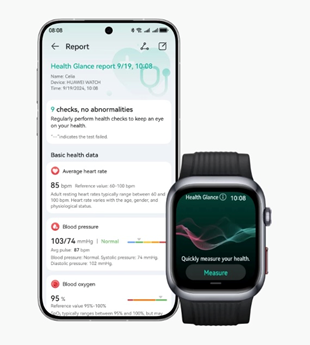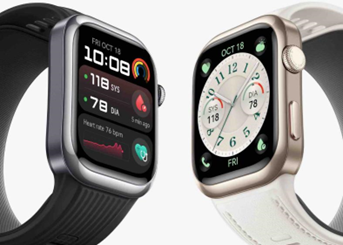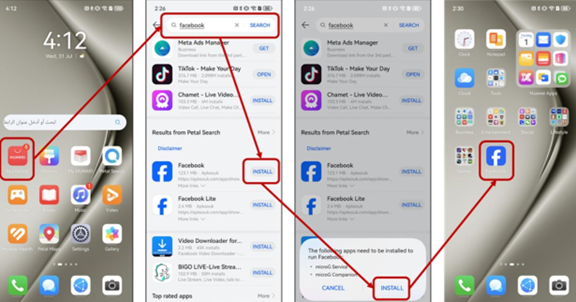Managing
blood pressure can feel like a constant challenge, especially for individuals
with busy work schedules or active lifestyles. Elevated blood pressure, or
hypertension, is often referred to as a "silent killer" because it
can go unnoticed until it leads to serious health complications. With long
working hours, irregular sleep patterns, and unhealthy eating habits, the risk
of blood pressure fluctuations increases significantly. In this article, we
will explore various strategies that can help you manage blood pressure in a
busy, fast-paced world, from exercise and diet to stress management and
technology.

Key Factors That Impact Blood Pressure in a Busy
Lifestyle
Several
factors contribute to the rise in blood pressure for people who lead fast-paced
lifestyles. Stress, poor diet, lack of physical activity, and irregular sleep
are some of the main culprits. Chronic stress, in particular, is known to cause
temporary spikes in blood pressure, which can accumulate over time and lead to
hypertension. Diet also plays a critical role. The consumption of foods high in
salt, sugar, and unhealthy fats can cause fluid retention and inflammation,
both of which contribute to higher blood pressure. On top of that, the busy
nature of modern life often leads to skipping meals or relying on processed,
convenient food options that are not ideal for heart health. Sleep deprivation is another common issue for
people with hectic schedules. Poor sleep patterns have been linked to increased
blood pressure and the risk of cardiovascular diseases. Without sufficient
rest, the body struggles to repair and maintain essential functions, including
blood pressure regulation.
Strategies for Managing Blood Pressure in a Fast-Paced
Environment
Incorporating Quick and Effective Exercise
Exercise
is one of the most effective ways to manage blood pressure, and even in a busy
schedule, it's possible to incorporate small, quick bursts of physical
activity. Simple activities such as taking the stairs instead of the elevator,
walking during breaks, or stretching after sitting for long periods can help
lower blood pressure over time. High-intensity interval training (HIIT) is also
a great option for individuals with limited time. Just 15-20 minutes of intense
exercise a few times a week can significantly improve cardiovascular health and
reduce hypertension. Exercise not only helps in managing blood pressure but
also has a positive effect on mood and overall stress levels, making it a
two-in-one solution for maintaining heart health while coping with a hectic
lifestyle.
Healthy Eating on the Go
Eating
healthy while juggling a busy schedule can be difficult, but it’s not
impossible. Focus on nutrient-dense, easy-to-prepare meals that support heart
health. Include more potassium-rich foods like bananas, spinach, and avocados,
as these help to balance the effects of sodium and lower blood pressure. Also,
be mindful of your coffee consumption. While coffee is a popular pick-me-up,
it's important to understand how it affects blood pressure. coffee blood pressure spikes are common for individuals sensitive to caffeine, so
limiting your intake or switching to decaffeinated options can be a helpful
strategy for maintaining stable blood pressure.
If you're constantly on the go, try to meal prep or choose healthy
options like salads with lean proteins, whole grain wraps, or smoothies. Avoid
processed foods that are high in sodium or sugars, as these can exacerbate
blood pressure issues.
The Role of Stress Management in Blood Pressure
Control
Mindfulness and Relaxation Techniques
Managing
stress is essential in maintaining healthy blood pressure levels. Chronic
stress can lead to sustained high blood pressure, so practicing mindfulness and
relaxation techniques is crucial. Activities like deep breathing, meditation,
and yoga can help lower stress and keep blood pressure in check. Mindful
breathing exercises, which focus on slow, controlled inhales and exhales, are
proven to reduce heart rate and lower blood pressure. Just taking 5-10 minutes
during the day to reset and practice these techniques can have a profound
impact on your health.
Time Management and Setting Priorities
One
of the main causes of stress in a busy lifestyle is poor time management.
Feeling overwhelmed with tasks can elevate stress levels and negatively affect
blood pressure. Setting clear priorities, breaking tasks into manageable
chunks, and making time for self-care can reduce the pressure of a hectic
schedule. Time management strategies like using a planner or digital tools to
organize daily tasks can reduce mental clutter and improve overall
well-being.
How Technology Can Help Manage Blood Pressure
Using Wearable Devices for Real-Time Monitoring
Wearable
technology has revolutionized the way we manage our health, especially for
people with busy lifestyles. Devices such as smartwatches allow individuals to
monitor their blood pressure in real-time, offering continuous feedback on
their cardiovascular health. For example, the Huawei Watch D2 features dynamic
blood pressure measurement and provides 24/7 automatic monitoring. Whether
you're at work, exercising, or even sleeping, the watch tracks your blood
pressure and gives you a detailed report of your health, helping you stay
informed and take timely action when needed. The Huawei Watch D2 also offers
comprehensive sleep tracking, monitoring heart rate, oxygen saturation levels
(SpO2), and abnormal breathing patterns, ensuring that your body gets the rest
it needs to regulate blood pressure properly

Mobile Apps for Tracking Health and Wellness
In
addition to wearables, mobile apps are an invaluable tool for tracking blood
pressure and overall wellness. Apps that sync with your devices can store and
analyze data over time, providing a comprehensive picture of your health. These
apps offer reminders to check blood pressure, keep track of daily activities,
and even suggest lifestyle changes that can improve your health.
Tips for Long-Term Blood Pressure Management in a Busy
Lifestyle
Regular Health Check-Ups and Monitoring
Regular
visits to the doctor for check-ups and blood pressure monitoring are essential,
even if you feel healthy. It's important to catch any potential issues early
and address them before they become more serious. Consistent monitoring also
helps you understand the effectiveness of any lifestyle changes you're making,
whether it's dietary improvements, exercise, or stress management.
Building Consistency with Small, Sustainable
Changes
Sustainable
changes are the key to long-term blood pressure management. Rather than
attempting drastic, temporary changes, focus on making small, manageable
adjustments that you can stick with. Over time, these habits will become a
natural part of your routine, helping to keep blood pressure in a healthy range
and improving your overall quality of life.
Conclusion
Managing
blood pressure in a fast-paced lifestyle requires consistent effort, but with
the right strategies and tools, it’s completely achievable. Incorporating
exercise, healthy eating, stress management, and leveraging technology to
monitor your health can significantly improve your blood pressure and overall
well-being. Prioritize regular health check-ups and adopt small, sustainable
changes that can make a lasting impact. In a world that never slows down,
taking the time to care for your health is the key to thriving as you age.



